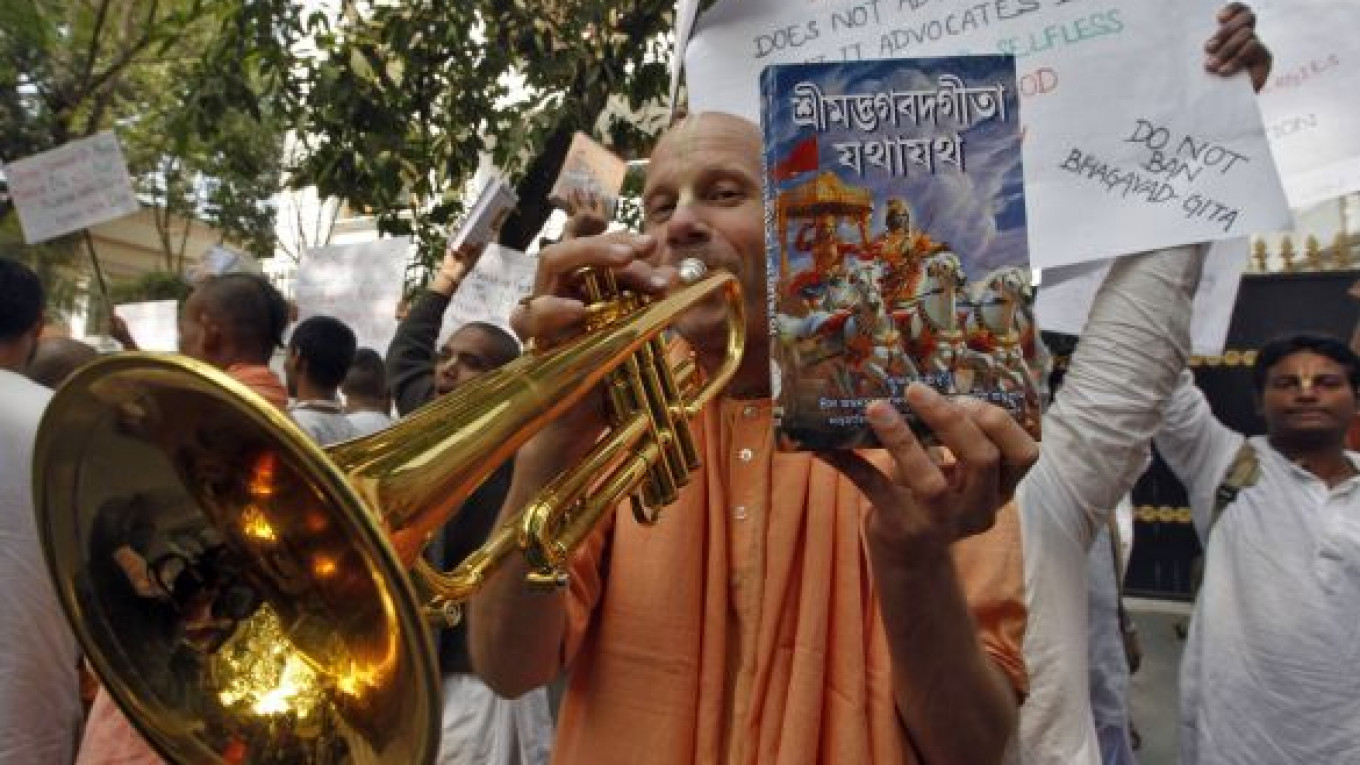NEW DELHI — Angry Indian lawmakers forced parliament to close Monday and protesters gathered outside a Russian consulate over a Siberian trial calling for one of Hinduism's most holy books to be put on a list of banned literature that includes Hitler's "Mein Kampf."
The case filed by Tomsk prosecutors says a translation of the "Bhagavad Gita" is extremist because it insults nonbelievers.
"We will not tolerate an insult to Lord Krishna," members of parliament shouted, until the house speaker adjourned parliament for several hours.
The "Bhagavad Gita" takes the form of a conversation between Hindu god Krishna and a prince called Arjuna prior to a battle. Its philosophical insights were praised by Albert Einstein and form a bedrock of the Hindu belief system.
India and Russia enjoy close diplomatic and defense ties, and Prime Minister Manmohan Singh returned from an annual visit to Moscow over the weekend. Lawmakers demanded to know whether he had raised the issue of the trial with Russian officials.
The translation up for trial is called "Bhagavad Gita as It Is," and is central to the global Hare Krishna movement. Members of the movement link the case against the text to the Russian Orthodox Church, which they claim wants to limit their activities.
Dozens of Hare Krishna adherents in orange robes shouted slogans and danced outside the Russian consulate in the eastern Indian city of Kolkata.
India's foreign minister will address parliament on Tuesday about the government's position with regard to the "Bhagavad Gita" case.
A Message from The Moscow Times:
Dear readers,
We are facing unprecedented challenges. Russia's Prosecutor General's Office has designated The Moscow Times as an "undesirable" organization, criminalizing our work and putting our staff at risk of prosecution. This follows our earlier unjust labeling as a "foreign agent."
These actions are direct attempts to silence independent journalism in Russia. The authorities claim our work "discredits the decisions of the Russian leadership." We see things differently: we strive to provide accurate, unbiased reporting on Russia.
We, the journalists of The Moscow Times, refuse to be silenced. But to continue our work, we need your help.
Your support, no matter how small, makes a world of difference. If you can, please support us monthly starting from just $2. It's quick to set up, and every contribution makes a significant impact.
By supporting The Moscow Times, you're defending open, independent journalism in the face of repression. Thank you for standing with us.
Remind me later.






